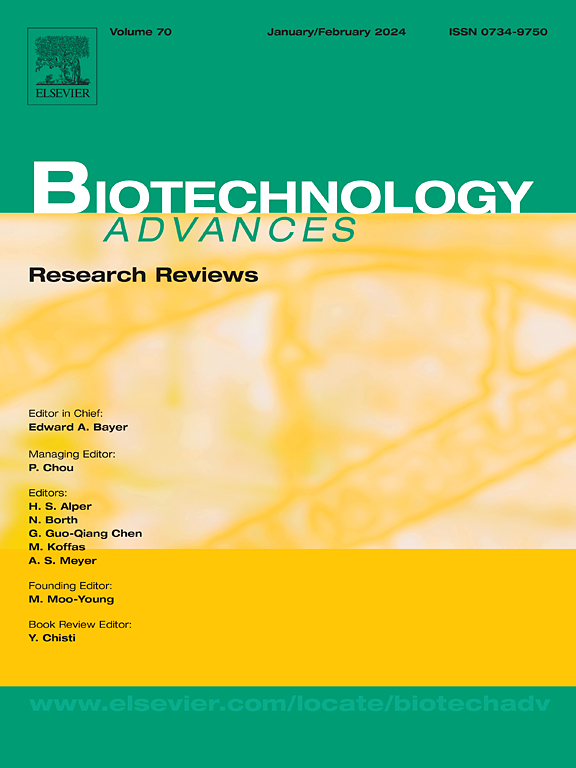Revolutionizing lignin valorization: Key advances in demethylation, methylation, and methyl metabolism
IF 12.5
1区 工程技术
Q1 BIOTECHNOLOGY & APPLIED MICROBIOLOGY
引用次数: 0
Abstract
The biological valorization of lignin offers significant potential for the production of valuable bio-based products, addressing the challenges posed by the recalcitrant and heterogeneous of lignin. However, the varying degrees of methoxylation in the three typical lignin units represent a key rate-limiting factor for the efficient biological conversion of lignin derivatives. Herein, this review systematically prospects the processes of demethylation, methylation and methyl metabolism in biological lignin valorization. The demethylases, methyltransferases and enzymatic mechanisms associated with the aromatic catabolism of lignin derivatives had been elaborated in detail. Furthermore, a promising methyl-cycle route for microbial lignin valorization was summarized, enhancing the carbon utilization efficiency in lignin valorization and facilitating the production of natural aromatics. Novel and advanced strategies, including machine learning-assisted enzyme engineering, synthetic biology, and metabolic engineering, are highlighted as transformative tools for overcoming bottlenecks in microbial lignin bioconversion into high-value products. Overall, prospecting demethylation, methylation and methyl metabolism contribute to the sustainable valorization of lignin, fostering the growth of the lignin-based bioeconomy.

革新木质素增值:去甲基化、甲基化和甲基代谢的关键进展
木质素的生物增值为生产有价值的生物基产品提供了巨大的潜力,解决了木质素的顽固性和异质性带来的挑战。然而,三个典型木质素单元中不同程度的甲氧基化是木质素衍生物高效生物转化的关键限速因素。本文系统地综述了生物木质素增值过程中的去甲基化、甲基化和甲基代谢过程。详细阐述了木质素衍生物芳香分解代谢的脱甲基酶、甲基转移酶及其作用机制。总结了微生物木质素增值的一条很有前途的甲基循环途径,提高了木质素增值的碳利用效率,促进了天然芳烃的生产。新的和先进的策略,包括机器学习辅助酶工程、合成生物学和代谢工程,被强调为克服微生物木质素生物转化为高价值产品的瓶颈的变革性工具。总之,研究木质素的去甲基化、甲基化和甲基代谢有助于木质素的可持续增值,促进木质素生物经济的发展。
本文章由计算机程序翻译,如有差异,请以英文原文为准。
求助全文
约1分钟内获得全文
求助全文
来源期刊

Biotechnology advances
工程技术-生物工程与应用微生物
CiteScore
25.50
自引率
2.50%
发文量
167
审稿时长
37 days
期刊介绍:
Biotechnology Advances is a comprehensive review journal that covers all aspects of the multidisciplinary field of biotechnology. The journal focuses on biotechnology principles and their applications in various industries, agriculture, medicine, environmental concerns, and regulatory issues. It publishes authoritative articles that highlight current developments and future trends in the field of biotechnology. The journal invites submissions of manuscripts that are relevant and appropriate. It targets a wide audience, including scientists, engineers, students, instructors, researchers, practitioners, managers, governments, and other stakeholders in the field. Additionally, special issues are published based on selected presentations from recent relevant conferences in collaboration with the organizations hosting those conferences.
 求助内容:
求助内容: 应助结果提醒方式:
应助结果提醒方式:


